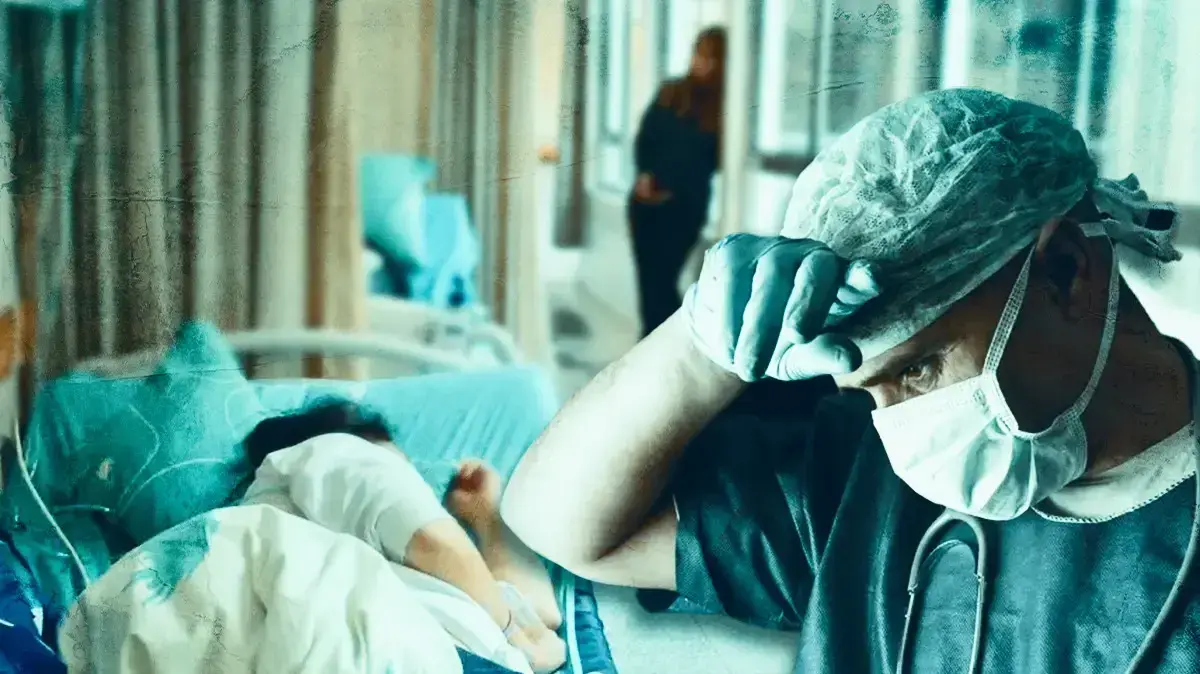What is the right medicine for the elderly?
Have you ever wondered what the difference is between pediatrics and geriatric medicine?
Professor Eli Mizrahi, a geriatrician and psychogeriatrician, explains what is the right medicine for the elderly and why it is also beneficial for people with normal cognitive function.
Prof. Eli Mizrahi, in collaboration with zap doctors
09/09/2021
Thursday, 09 September 2021, 07:43 Updated: Monday, 20 September 2021, 09:46
Share on Facebook
Share on WhatsApp
Share on Twitter
Share on Email
Share on general
Comments
Comments
Important to know (Photo: ShutterStock)
The elderly population constitutes about 11% of the general population but consumes about 50% of the health basket.
Despite this figure many seniors show a suspicious to hostile attitude to the field of geriatrics, as for them it is an area identified with functionally disabled people, people who do not recognize others, disconnected people, elderly people suffering from recurrent falls, or people who have suffered a stroke and as a result become caregivers.
There is no doubt that geriatric medicine has "gained" a negative image, but in fact the goal of senior medicine is to prevent people aged 65 and over from reaching this state.
More on the subject
How is depression diagnosed and treated in the elderly?
In collaboration with zap doctors
The difference between a geriatrician and a family doctor
A geriatrician is the physician who treats the elderly and unlike other areas of specialization in medicine, he adopts a holistic approach relating to the mental - mental - and physical condition of the patient. The geriatrician has a deep knowledge and understanding of medicine in people aged 65 and over and therefore can identify various medical and metabolic conditions among the elderly patient population as well as perform an assessment of the subject's mental and mental ability and thus offer a variety of medical advice that will help the patient maintain quality of life.
Geriatrics treat a variety of medical problems that the elderly population suffers from, however they specialize mainly in a number of certain diseases that characterize the elderly such as urinary incontinence or irritable bowel syndrome which is characteristic among 30% of the population at these ages, falls, depression, memory disorders and medication.
In addition, over the years the muscle mass of people aged 65 and over decreases (sarcopenia) and as a result the functional capacity of these people also decreases. The geriatrician, who has a holistic medical approach, finds appropriate solutions to the patient's mental, mental and physical condition, examines the medications he is taking and builds a tailored program whose role is to help the patient maintain as high a level of functioning as possible. The geriatrician also works to diagnose and treat the medical and functional problems that characterize the elderly, as indicated above, and advises in maintaining an active and healthy lifestyle, eliminating factors in the subject's home that may lead to falls and early diagnosis of conditions that may indicate cognitive decline. .
In geriatric medicine we refer to four age groups:
1. Aged 74-65 - Usually these are functionally independent people who are cognitively preserved, some of whom even work and help their children raise their grandchildren.
2. 84-75 year olds - These are people who are characterized by poorer functional and cognitive abilities compared to the previous age group, due to a number of physiological changes, such as decreased muscle mass, slowing of nerve conduction velocity, and decreased visual and auditory acuity.
3. Aged 85 and over - This is the smallest group of the total group of people aged 65 and over, but with a very fast growth rate. These people are at a relatively low level of functioning and relatively poor health and therefore the state is required to give this age segment an appropriate response.
4. The fourth age group - those aged 100 and over whose number in the population is increasing.
A person's chronological age does not indicate his physiological and functional condition.
For example a 65-year-old person after not having a series of heart attacks, and stroke due to severe atherosclerosis will function significantly less well than a 90-year-old person who has maintained a balanced and calm lifestyle and has reached his extreme age with properly functioning blood vessels.
Therefore for the geriatrician the chronological age is only a number whereas the physiological-biological age is its elite genre adapted to the correct and appropriate treatment for maintaining a high quality of life.
More on the subject
When should a fall worry you?
Clarification of recurring falls
In collaboration with zap doctors
What age group do you belong to (Photo: ShutterStock)
So what is that physiological-biological age?
The physiological-biological age reflects the mental and functional ability that does not necessarily correspond to the chronological age. For example there are people in old age who function like young people, they are independent, maintain social connections, are active and live a full life. These people maintain proper maintenance, once a year take preventative measures and initiate a medical examination that includes mental, mental and functional assessment, implement small changes that help them maintain a normal mood and allow the attending physician - in this case none other than the geriatrician - to identify risk factors ahead of time. , Treat them and reduce the risk of various diseases.
In conclusion, just as your children receive the appropriate medical response from their pediatrician, you too deserve the best response according to your age characteristics. The geriatrician will be able to help you maintain proper functioning over time, share good tips about the general, mental, mental, medical and functional condition so that you can continue to function as yesterday and Tuesday in a better way and for a longer period of time. In addition, if you experience worsening of function or if you experience depression, memory disorders, medications narrow your steps and urinary incontinence is discovered - contact a geriatrician who specializes in treating your age group and has a deep understanding of third age medicine (65 and older). The geriatrician will be able to advise you on various issues and detail the benefits and risks of various medical procedures such as late-age surgeries tailored and appropriate to your lifestyle and age characteristics.
The author, Professor Eli Mizrahi, geriatrician and psychogeriatrician, director of the Shmuel Harofe Geriatric Medical Center, in Beer Yaakov.
To contact us to arrange a home visit and for information, call:
Clinic: 03-6449976
Mobile: 052-4738706
More on the subject
Memory Disorders: How Do I Know If I Have Dementia?
In collaboration with zap doctors
health
Doctors
Tags
The third age















/cloudfront-eu-central-1.images.arcpublishing.com/prisa/IGZ7GOCXZ5GUPAQ2HWGK6Z76BU.jpg)